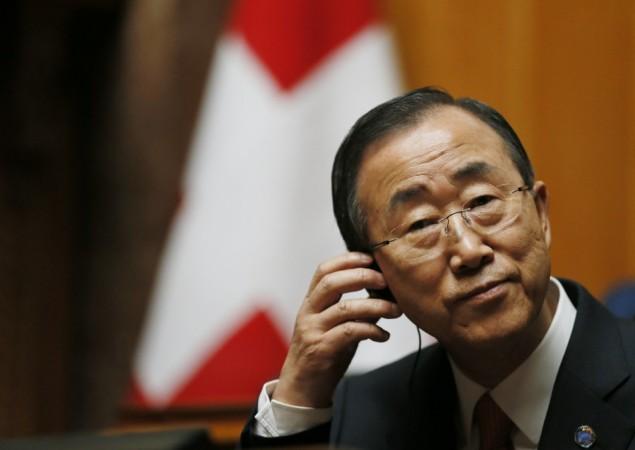
The Iraqi Parliament on Monday gave its ascent to the new cabinet of Prime Minister Haider Al-Abadi and his government's programme for the next four years. Due to political compulsions, Al-Abadi left key security portfolios like ministry of defense and interior vacant.
Describing the new government formation in Iraq as "a positive step towards political stability and peace in the country," United Nations secretary-general Ban Ki-moon welcomed the new government.
In a statement, Ban's spokesperson said that the UN secretary-general welcomes Monday's announcement of new inclusive government formation in Iraq. Ban also conveyed his good wishes to the new Iraq government and the new Prime Minister Al-Abadi.
The statement said: "At this challenging moment for Iraq and the region, today's decision by the Iraqi Council of Representatives is a positive step towards political stability and peace in the country," Xinhua quoted.
Iraqi constitution compels the newly appointed prime minister to pick his cabinet members within the next 30 days. Al-Abadi was nominated as prime minister-designate on 11 August, 2014 by the country's President Fuad Masoum.
Ban's statement said: "The secretary-general calls on all Iraqi political leaders to build on the current momentum of collaboration to ensure that a decision is made without delay on the pending appointments of minister of defence and minister of interior."
The UN secretary-general also paid a tribute to the outgoing Prime Minister Nuri al-Maliki for his leadership at the time of transition. Ban Ki-moon expects the approved ministerial programme will be implemented in a phased manner to cater to all communities.
The statement further added: "The United Nations looks forward to working with the new government of Iraq in its efforts to serve all Iraq's communities while confronting major challenges."
The Iraqi government programme includes active participation from all factions of the country in decision-making, national reconstruction, military rebuilding, administration decentralisation, nation-wide participation in security forces, anti-terrorism mission and settlement of disputes by Iraq's autonomous region of Kurdistan.

















